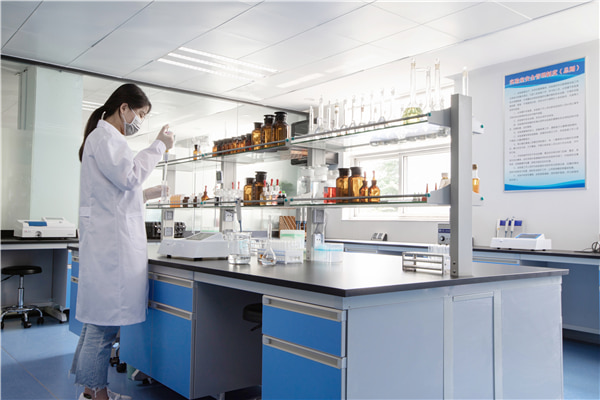 Current
Location:Home>SOLUTIONS>Soil laboratory>Scientific research college soil laboratory testing supporting instrument construction plan
Current
Location:Home>SOLUTIONS>Soil laboratory>Scientific research college soil laboratory testing supporting instrument construction plan
Scientific research college soil laboratory testing supporting instrument construction plan
Article Source: Hengmei Technology Release time:2024-04-30 15:34:33
Soil is an important part of the earth's ecosystem, which directly affects plant growth and human life. Soil pollution may have a significant impact on the environment and human health, such as affecting the quality of crops and polluting groundwater. Therefore, scientific research institutions hope to scientifically evaluate soil quality by establishing a professional soil testing laboratory, prevent soil pollution, and ensure the stability of the ecological environment and the safety of crops.

Scientific research institutions have relatively complete educational research facilities, and can provide the professional knowledge and technical support required for soil detection and analysis. The establishment of the soil testing laboratory can provide a practical research platform for scientific research institutions, promote the exchanges and cooperation of related disciplines, and improve the level of scientific research and teaching quality.
In addition, the construction of the soil testing laboratory can also promote the cooperation between scientific research institutions and local agriculture, environmental protection and other departments, strengthen the application and promotion of scientific research results, and provide support for agricultural production, environmental protection and sustainable development.
This plan can be applied to fertilizer factories, vocational education centers, high education institutions, scientific research institutes, etc.
| Serial number | name | Specification | quantity | Remark |
| 1 | Soil nutrient detector | HM-GT4 | 1 | Can detect soil and fertilizer, organic fertilizer (including leaf surface fertilizer, water -soluble fertilizer, spray fertilizer, etc.), fast -acting nitrogen, fast -acting phosphorus, effective potassium, whole nitrogen, whole phosphorus, general potassium, organic matter, pH, salt content, salt content Calcium, magnesium, sulfur, iron, manganese, boron, zinc, copper, chlorine, silicon and other medium -sized elements, as well as various heavy metals such as lead, chromium, cadmium, mercury, arsenic, etc. |
| 2 | PH | Accuracy0.1/0-14PH | 1 | Periodine measurement |
| 3 | TDS plan | scope:0.01%~1.00% error:±5% | 1 | Evaluate salt content |
| 4 | Soil diamond | 1.2m | 1 | Soil sampling |
| 5 | Ring knife | 50.46x50cm | 5 | Soil accurate sampling |
| 6 | scraper | 3.4 rust steel | 1 | Soil scraping |
| 7 | Aluminum box | 55*35mm | 5 | Sample preservation |
| 8 | Drum drying box | 350*450*450 | 1 | Sample drying |
| 9 | Soil sieve | 10、20、40、60、80、100Aimalize | 6 | Sample screening |
| 10 | Soil crusher | 100g | 1 | Sample crushing |
| 11 | Planetary ball mill | Four ball mills work at the same time | 1 | Sample grinding and sample |
| 12 | Electronic balance | 100g/0.01g | 1 | Sample weighing |
| 13 | Analytical Balances | 100g/one in 10,000 | 1 | Sample accurate weighing |
| 14 | Super pure water heater | 10L | 1 | Distilled water production |
| 15 | Pose | 1-10mL and 0.1-1ml | 2 | Mobilization |
| 16 | Water bath | Dual -hole | 1 | Sample heating |
| 17 | Electric furnace | 1000W | 1 | Sample heating |
| 18 | Rack | 54*20*14cm | 1 | Fixed processing |
| 19 | Oscillator | 0-300r/min | 1 | Mixed sample |
| total | (¥49800)Tax | |||
In general, the construction of the soil testing laboratory of scientific research institutions is to promote the in -depth development of environmental protection and human health research, improve the application value of scientific research results, and contribute to social and economic development.
Address of this article:https://www.kjhm.net/solu2/26.html
 Related News
Related News
-
21 / 2024-11
Multifunctional pesticide residue detectors can adapt to diverse detection needs.
Learn more
-
16 / 2025-09
Smart Water Quality Management: The Portable Multi-Parameter Analyzer
Learn more
-
15 / 2024-10
Intelligent Environmental Monitoring: Analysis Of The Advantages Of The New Air Planktonic Bacteria Sampler.
Learn more
-
16 / 2025-09
Total Phosphorus Analyzer: Essential for Water Quality and Environmental Monitoring
Learn more









